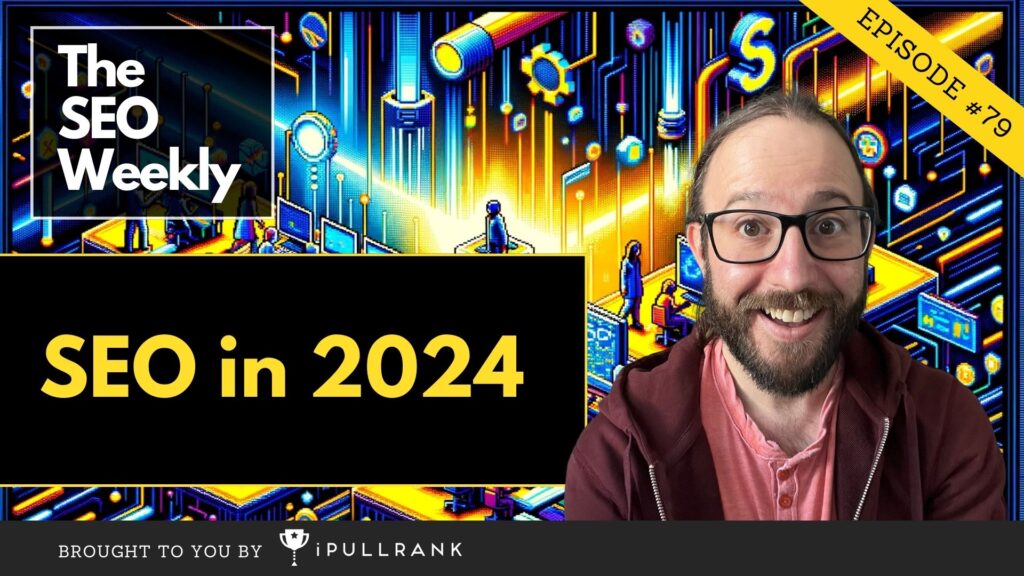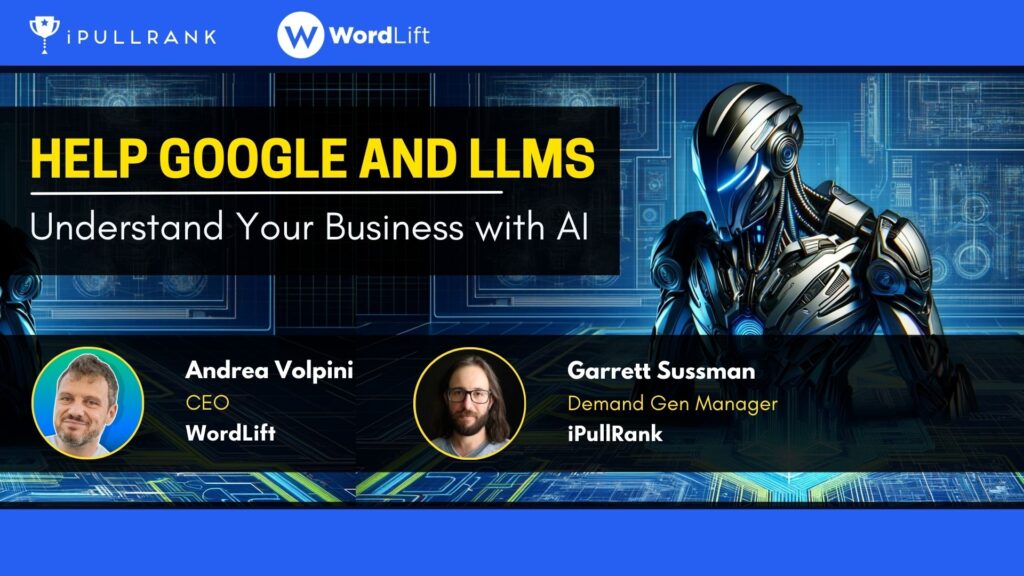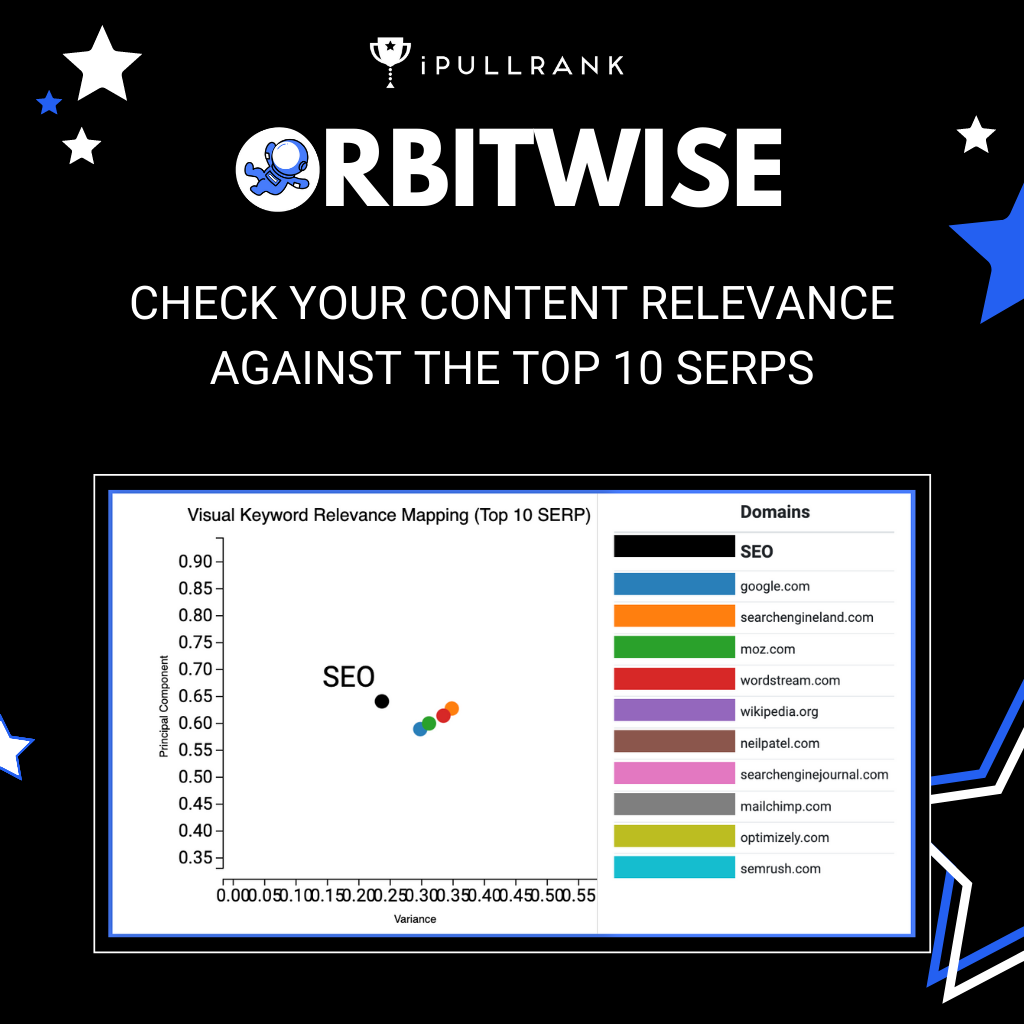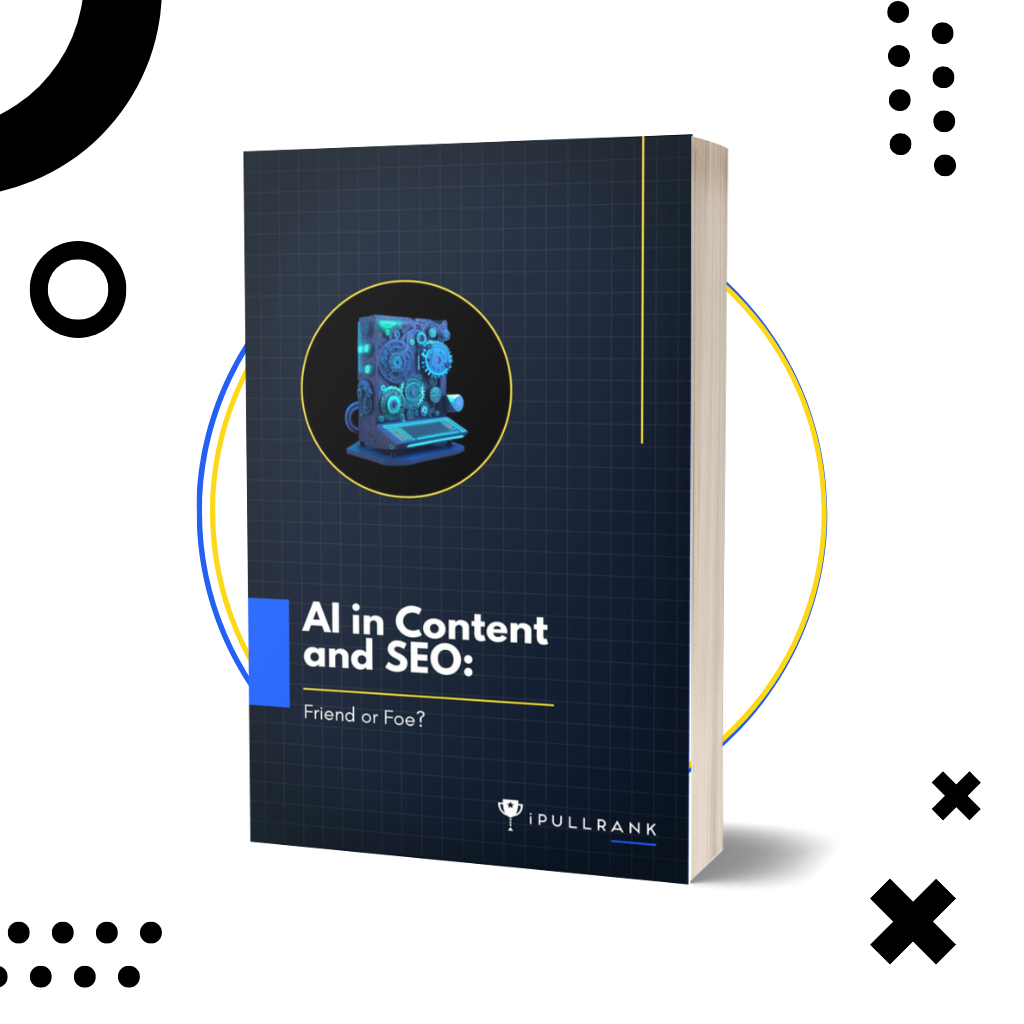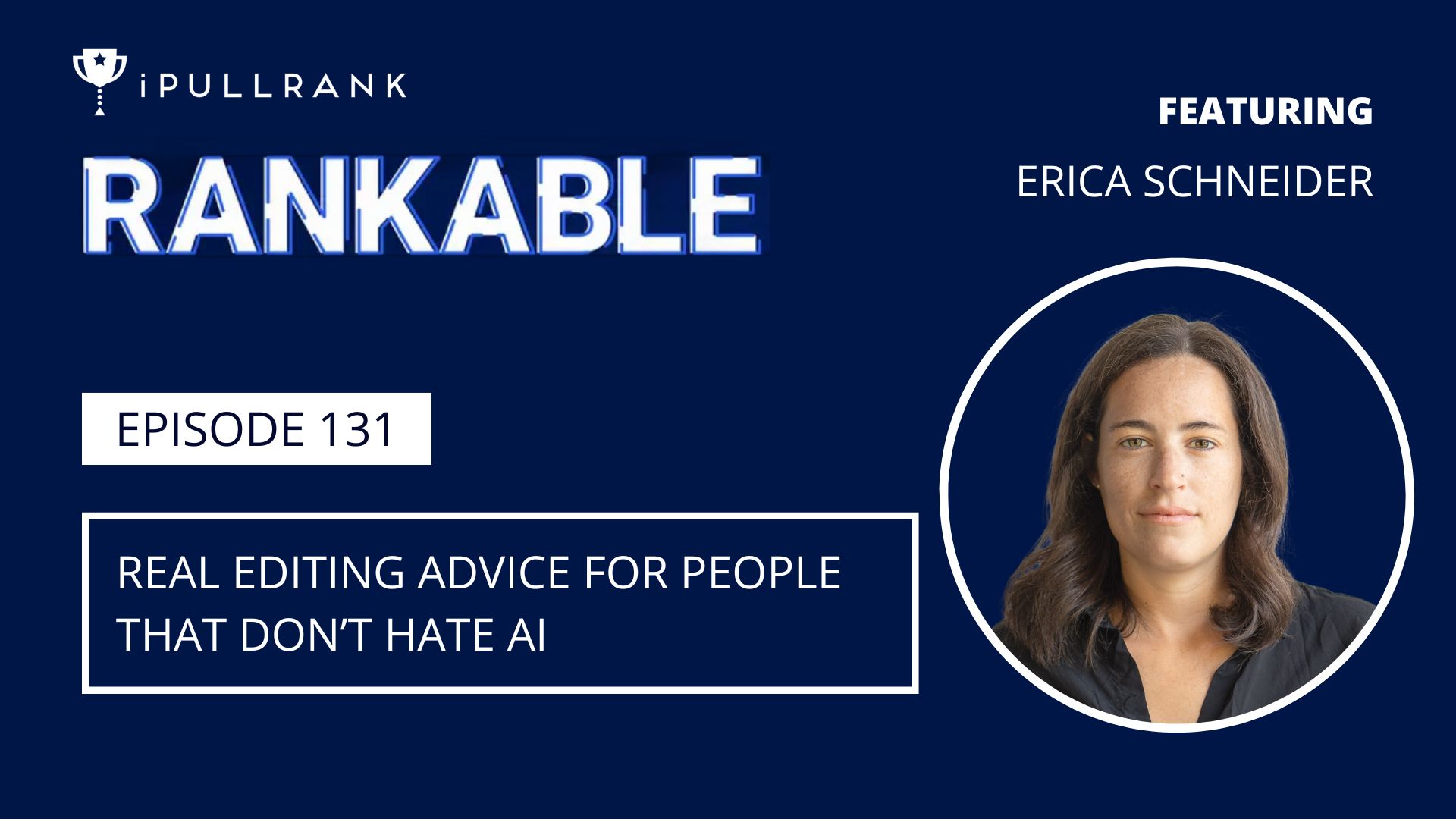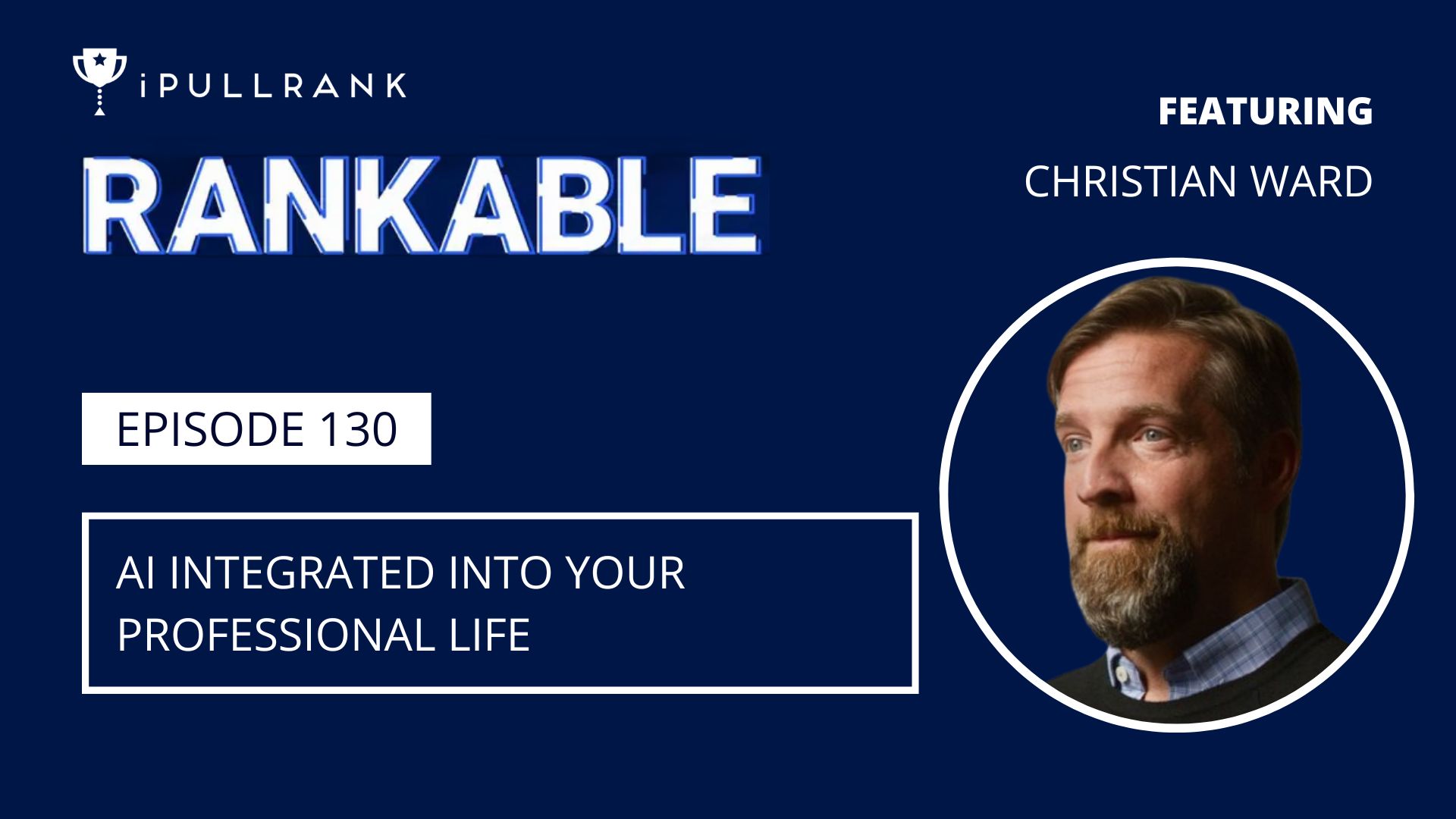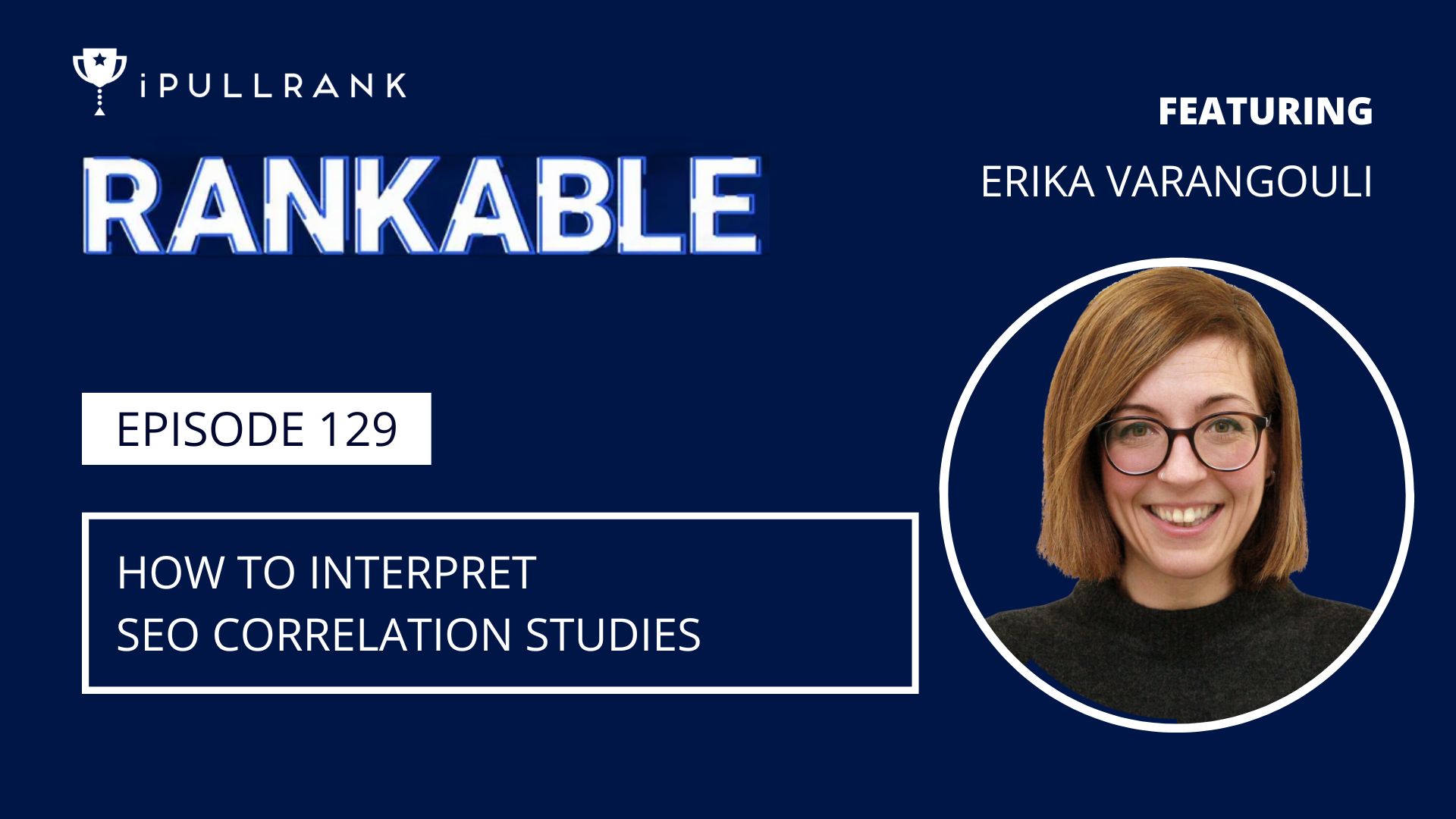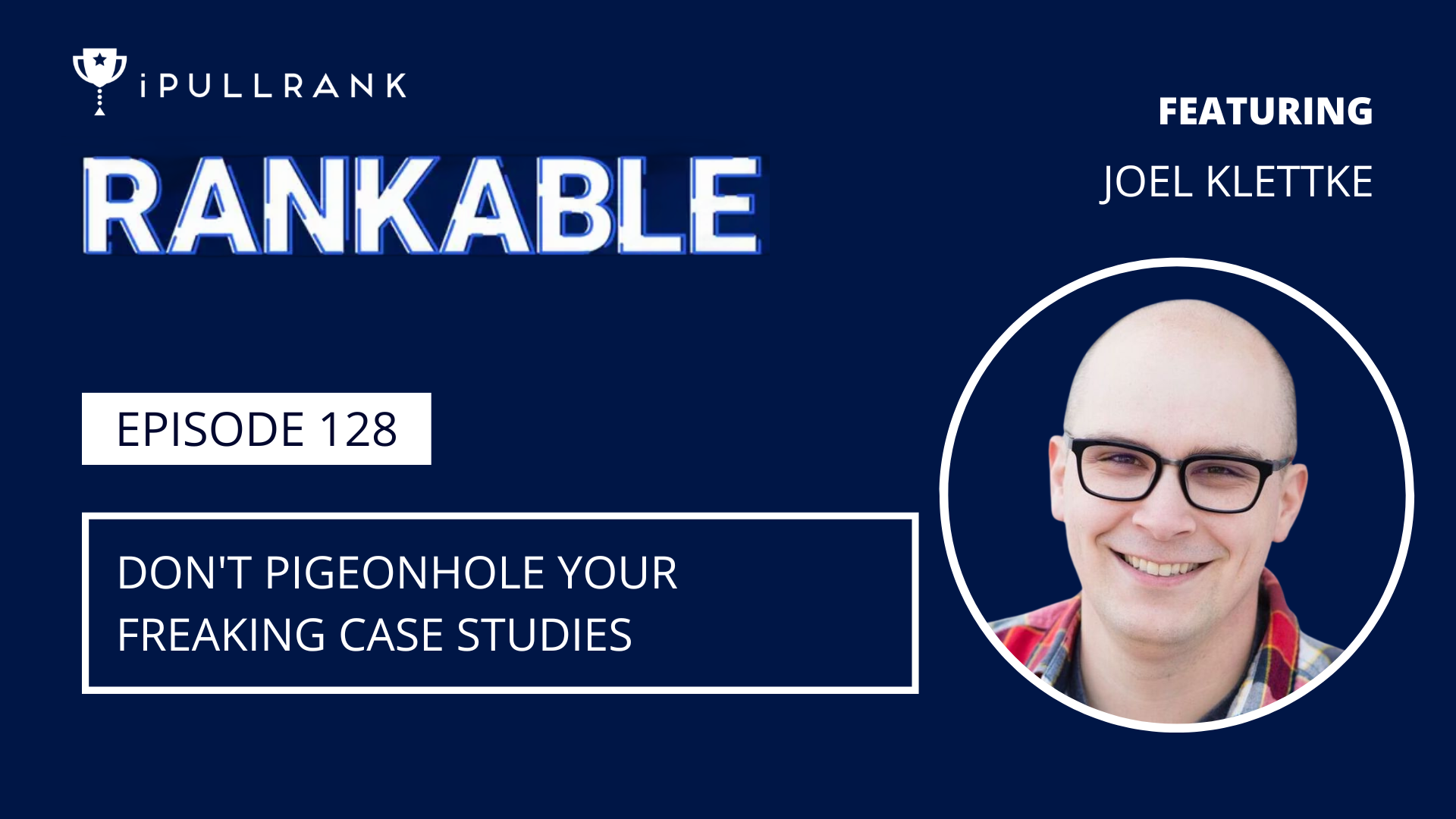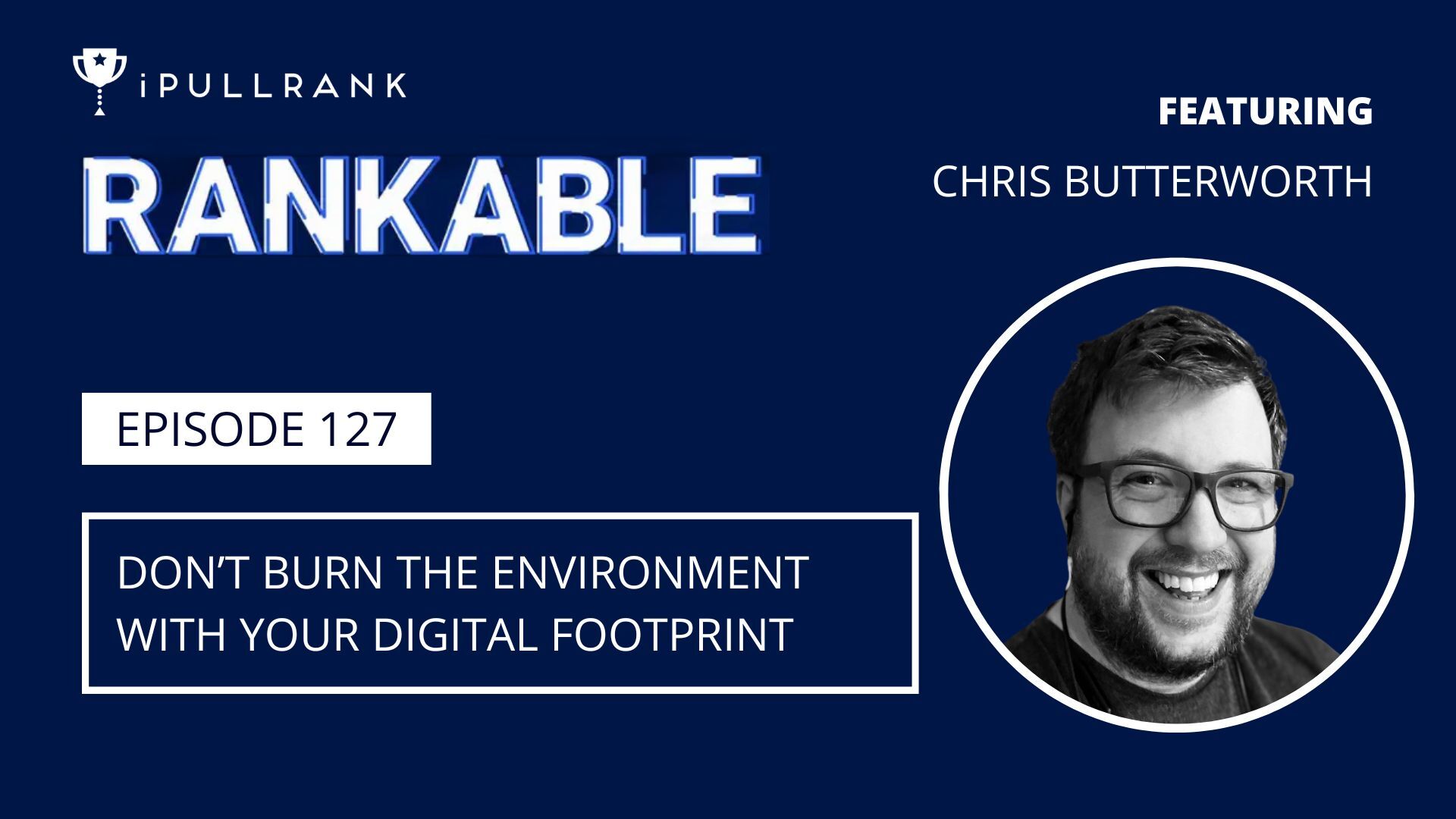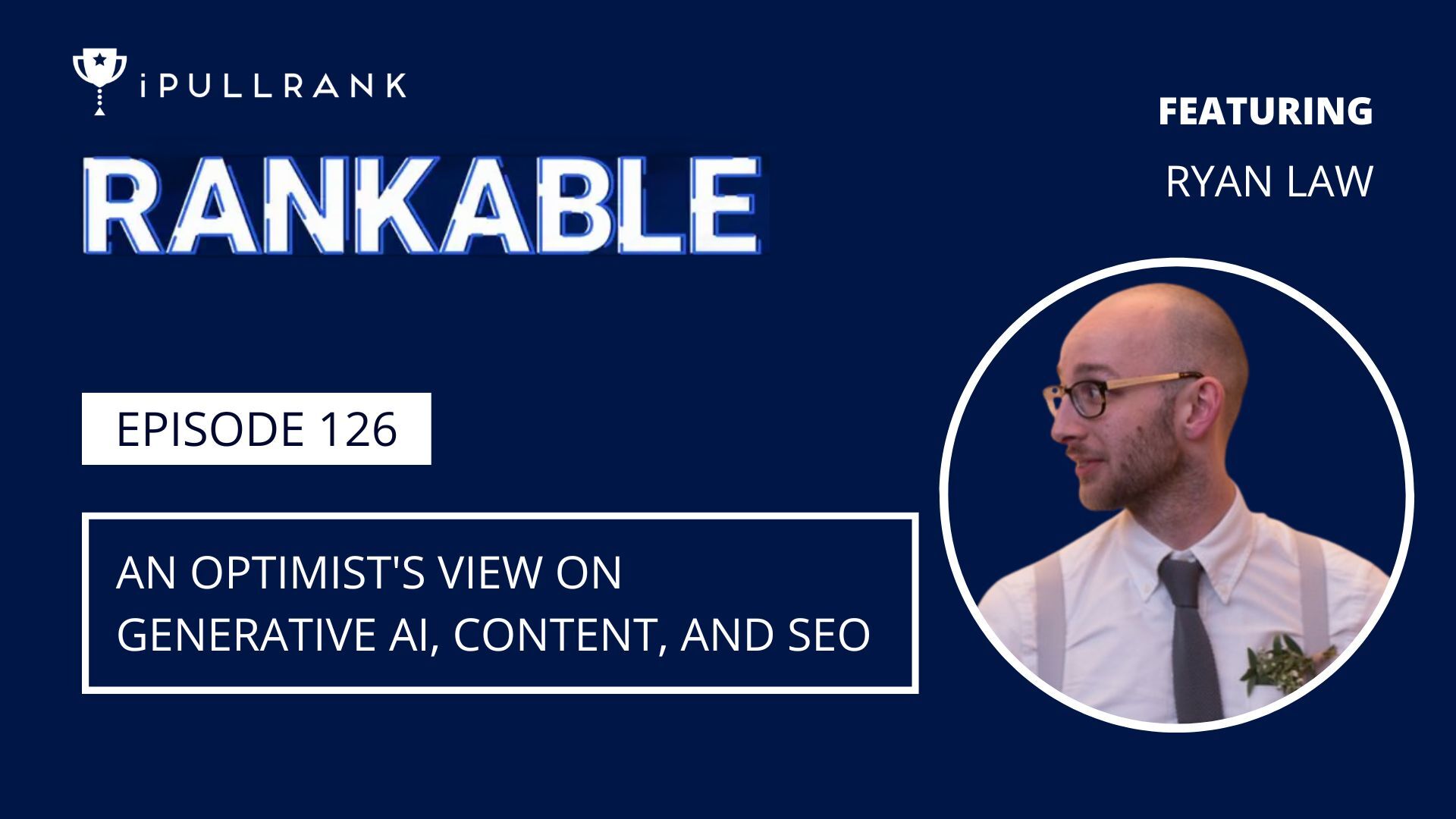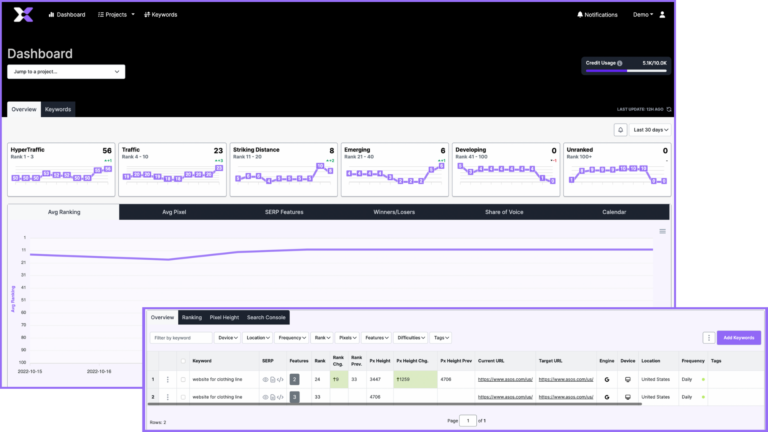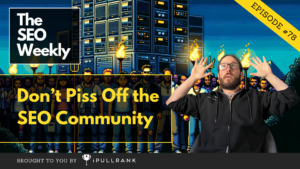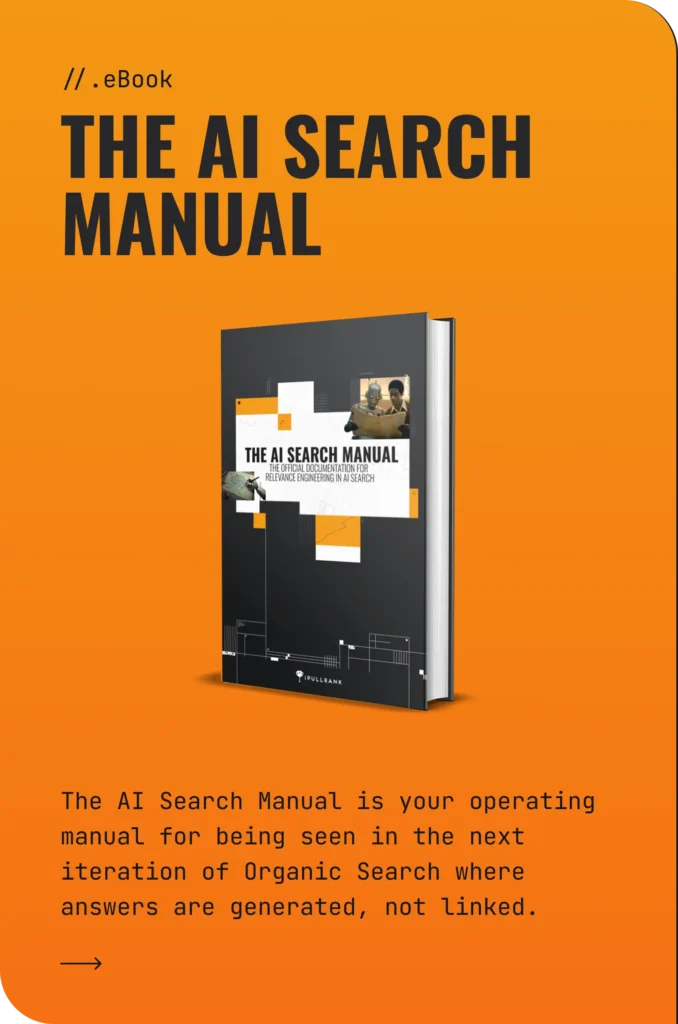The SEO Weekly
SEO in 2024 - Episode 79
Where queries are weird, advice is controversial, and everything depends.
Why does every website look the same? Well, they don’t. But The Verge highlighted how Google incentivizes certain types of content and Semrush published their Ranking Factors (correlation study) that reinforces the idea that we’re all chasing copycat content to earn high-volume search traffic. Will things change in 2024? It’s hard to know despite the algorithm updates and helpful content system updates.
We also discussed s few very cool homemade tools made by the SEO industry, a surprising SGE study that indicated over 93% of links in the AI snapshot were from outside the top organic rankings, and Google shut down Google Business Websites.
Also:
- GPT4 vs Google Cloud API for AI SEO tasks
- Some fun SEO parody accounts on X
- What is Google's Navboost?
Host: Garrett Sussman | Demand Generation Manager
Show notes / References:
Google/SERP Updates:
Feature Story:
How Google Perfected the Web – The Verge – Mia Sato
In this article, Mia Sato discusses the pervasive influence of Google’s search algorithm on web content creation. She highlights how businesses and bloggers tailor their websites and content to rank higher in Google searches, often at the expense of quality and originality.
This SEO-focused approach leads to a proliferation of formulaic, keyword-dense content. Basically, a ton of unhelpful copycat content that doesn’t actually satisfy a searcher’s intent.
She also covers the evolution of Google’s guidelines, emphasizing expertise and trust, and the emerging challenges posed by generative AI in search results. The article underscores the dilemma faced by content creators in balancing quality content with the need to satisfy Google’s algorithm for visibility.
here are three key takeaways for SEO professionals:
Adapt to Google’s Evolving Guidelines: SEO strategies must continuously evolve to align with Google’s changing guidelines, particularly with the increasing emphasis on expertise, authority, trust, and user experience.
Balance Quality and Optimization: Strive to maintain a balance between creating high-quality, engaging content and optimizing for search engines to avoid producing formulaic, keyword-heavy material.
Prepare for AI’s Impact on SEO: Stay informed and adapt strategies in anticipation of the growing influence of generative AI in search results, which may significantly alter current SEO practices.
One callout from the article, she claims that Google can understand our author pages and content for E-E-A-T to which Danny Sullivan, Google Search liaison, clarifies that it does not.
Author bylines aren't something you do for Google, and they don't help you rank better. They're something you do for your readers -- and publications doing them may exhibit the type of other characteristics our ranking systems find align with useful content. That's something I've… pic.twitter.com/vjYTTDW0kK
— Google SearchLiaison (@searchliaison) January 8, 2024
2024 Ranking Factors – Semrush – Marcus Tober
Semrush published a major study on Google ranking factors. The misnamed report is a correlation study, which means it identifies patterns between different variables but does not necessarily prove causation. So while it would be nice to identify specific ranking factors, you cannot take the information in the study as a surefire way to implement an SEO strategy. You can use it for hypotheses about your own site to set up site experiments, but that’s the extent of its usefulness.
Here are three key insights from the study that are worth considering as you build your own experiments:
Content Relevance and Quality: The study emphasizes the importance of content relevance to the query and the overall quality of the content.
Direct Traffic Correlation: There’s a notable correlation between direct traffic to a domain and its ranking, suggesting brand recognition and user trust play a role in search rankings.
Balance of Traditional and New Factors: The study incorporates both traditional ranking factors and newer considerations, like the relevance of a page to the query using word embeddings.
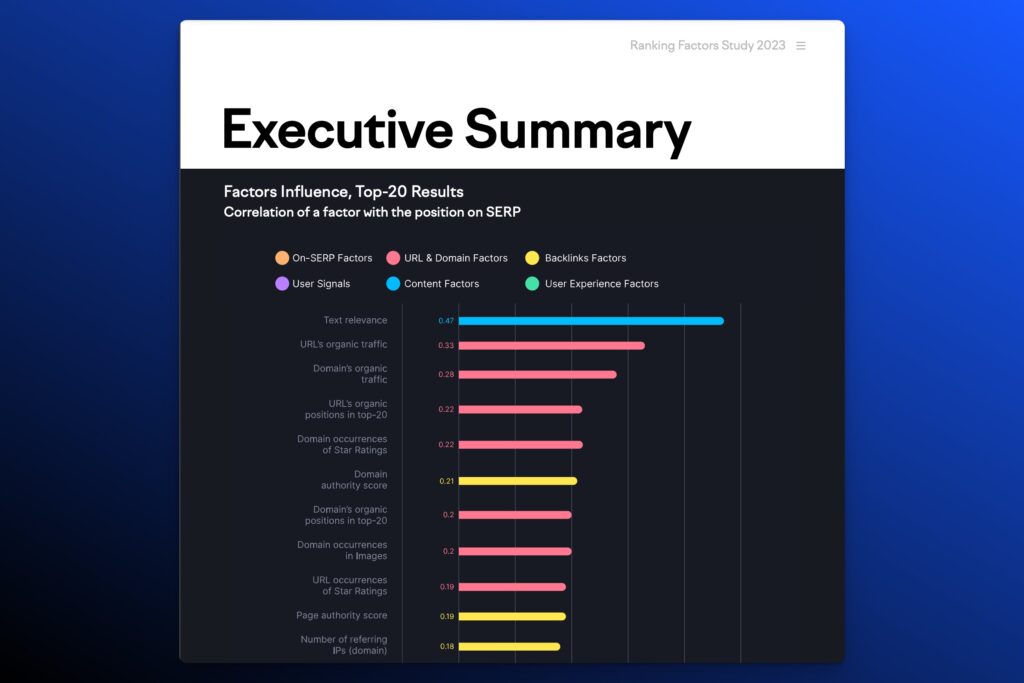
Relevant to how Google looks at your site and what you should consider in building out your strategy, Ori Zilbershtein posted this breakdown of an internal Google slide shared as evidence in the ongoing DOJ lawsuit against Google.
For those who missed the memo.
— Ori Zilbershtein (@OriZilbershtein) January 9, 2024
The three pillars of rankings as stated by Google:
- What you say you are (content)
- What others say you are (links / citations)
- What users think when they interact with your site
This means a very simply thing >> https://t.co/eFnpH8zxEy pic.twitter.com/diD28ZzpMx
GPT-4 vs. Google Cloud: Performance comparison on 9 SEO tasks – Lazarina Stoy
Lazarina Stoy compares the performance of GPT-4 and Google Cloud’s machine learning APIs across nine SEO tasks. These tasks include semantic analysis, classification, translation, and image understanding. Lazarina aims to inspire creative thinking about machine learning APIs, help understand where machine learning-based automation can enhance digital marketing efficiency, and highlight the importance of selecting the right tools for specific tasks. It emphasizes not relying on a single solution like ChatGPT for all automation needs.
Key Takeaways:
Diverse Capabilities: GPT-4 and Google Cloud exhibit different strengths across various SEO tasks, underlining the importance of task-specific tool selection.
Importance of Machine Learning in SEO: The study highlights the growing relevance of machine learning in enhancing SEO strategies and automating certain tasks.
Need for a Balanced Approach: Relying solely on one AI solution like ChatGPT for all SEO needs is not advisable; a more balanced approach that leverages the unique capabilities of different tools is recommended.
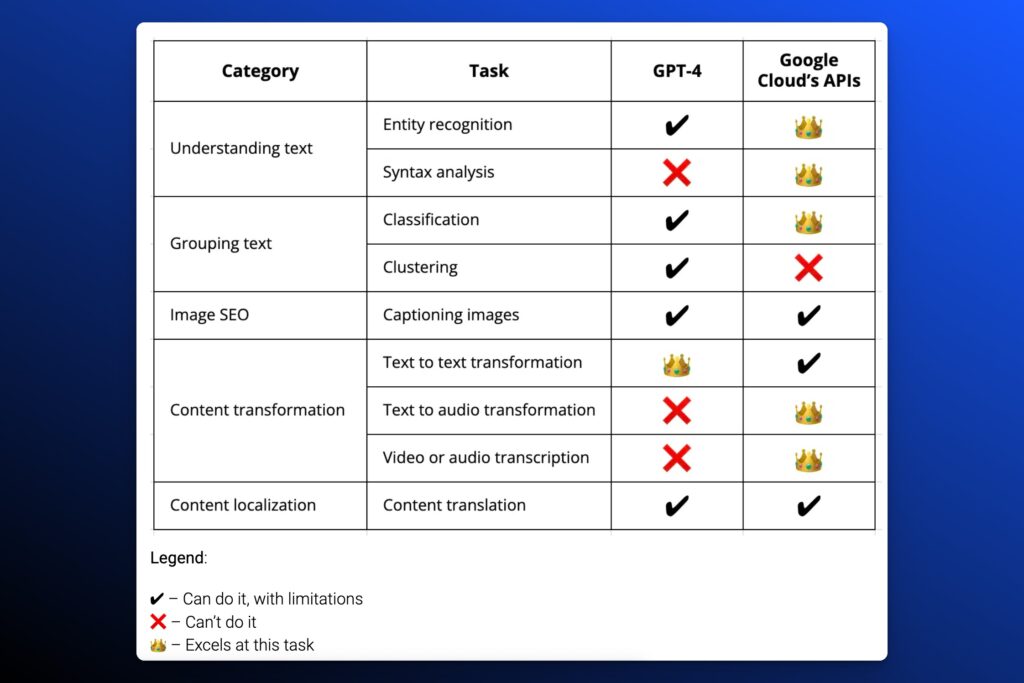
The Impact of Google’s Search Generative Experience on Organic Rankings – Authoritas – Laurence O’Toole
The Authoritas research study assesses the impact of Google’s Search Generative Experience (SGE) on organic search rankings.
Big data point from the study: “93.8% of generative links (in this dataset at least) came from sources outside the top-ranking organic domains. With only 4.5% of generative URLs directly matching a page 1 organic URL and only 1.6% showing a different URL from the same organic ranking domain.“
SGE’s Influence: SGE significantly shifts the top organic search result downwards, fundamentally altering its visibility and likely affecting click-through rates.
Generative Content Dominance: A substantial portion of SGE links comes from sources outside the top-ranking organic domains, introducing new URLs above the organic rankings.
Implications for SEOs: The study signals a critical shift for SEO strategies, emphasizing the need to adapt to these changes in Google’s search results presentation.
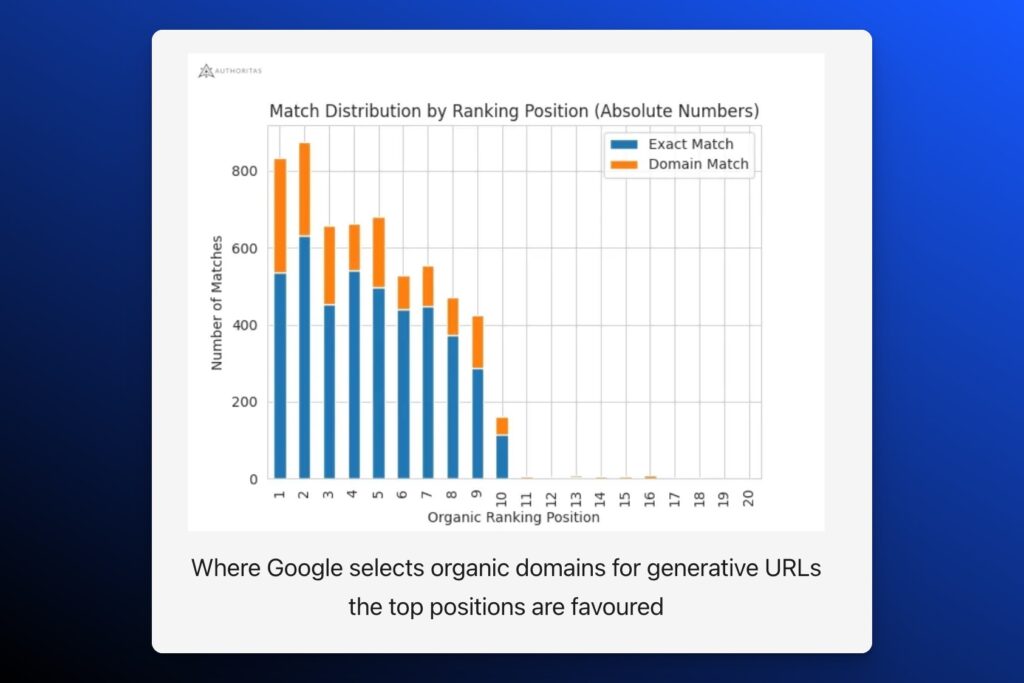
News Outlets Can’t Avoid Google’s AI – But Here’s How You Can Prepare For It – iPullRank – Garrett Sussman
In this deep dive, I addressed the challenges news SEO faces with the integration of Google’s Search Generative Experience (SGE). Here are my three key takeaways:
Impact on News Publishers: SGE can significantly change search result dynamics, potentially affecting organic traffic and visibility for news outlets.
Adaptation and Strategy: News organizations need to strategize for SGE’s impact, possibly affecting areas like affiliate marketing and product reviews.
The Evolving SEO Landscape: The introduction of SGE underscores the need for news SEOs to continuously adapt to Google’s changing search algorithms and features.
Webinar Replay – Help Google and LLMs Understand Your Business with AI
Watch Andrea Volpini of WordLift and me in this engaging presentation on how you can use AI to effectively classify your website with the structured data that Google (and LLM) wants to see.
Andrea answered the questions:
- Why ontologies for SEO?
- What is the role of semantic retrieval and Google’s Knowledge Graph in SGE?
- Why do we still need structured data?
FAQ Snippets have left the SERPs again – Brodie Clark
SERP Feature Update: Google looks to have finally removed FAQ rich results as of Jan 7th. It was officially removed for most sites a while back, then returned (in some capacity), now looks to be gone for good. 🫡
— Brodie Clark (@brodieseo) January 8, 2024
Note: have confirmed across various properties/external tools. pic.twitter.com/cd5J4NbqEZ
Fun SEO Parody Accounts on X:
Introducing 4th party cookies 🍪
— Google Search Honesty (@googlehonesty) January 6, 2024
We began the deprecation of 3rd party cookies a couple of days ago.
But don't worry because 4th party cookies are going to be 3rd party cookies on crack.
To stay compliant, just make sure any 3rd party data is shared with another party.
https://t.co/AEdV4apzps pic.twitter.com/sXWConPZKH
— Search Engine Onion (@thesearchonion) January 10, 2024
Highly Visible and Low Quality (or Unhelpful) – A Most Dangerous SEO Combination – Glenn Gabe
Glenn focuses on the risks of having high-visibility yet low-quality content in search engine results. Here are three key takeaways:
- Visibility and Quality Correlation: High visibility of low-quality content in search results can negatively impact SEO performance.
- Importance of Content Evaluation: Regularly assessing content quality is crucial to avoid penalization in search rankings.
- User Interaction Signals: Google’s use of user interaction signals, like Navboost, emphasizes the importance of content that satisfies user needs.
What Is Google’s Navboost Signal? – Dan Taylor
Dan explains Google’s Navboost signal, a system that enhances search accuracy for navigational queries using user click data. Here are three key takeaways:
- Navboost Utilizes User Click Data: It improves search result relevance, especially for navigation-oriented queries.
- Historic User Interactions Matter: Navboost archives user clicks for up to 13 months, influencing search outcomes.
- SEO Strategy Importance: Clear site structure and mobile-friendly design are crucial for optimal performance with Navboost.
Google Perspectives Dominated By Twitter, YouTube & Reddit – John Shehata
John analyzed the sources of content in the Perspectives carousel (not to be confused with the Perspectives filters), and found the the majority of content came from YouTube, Twitter, and Reddit.
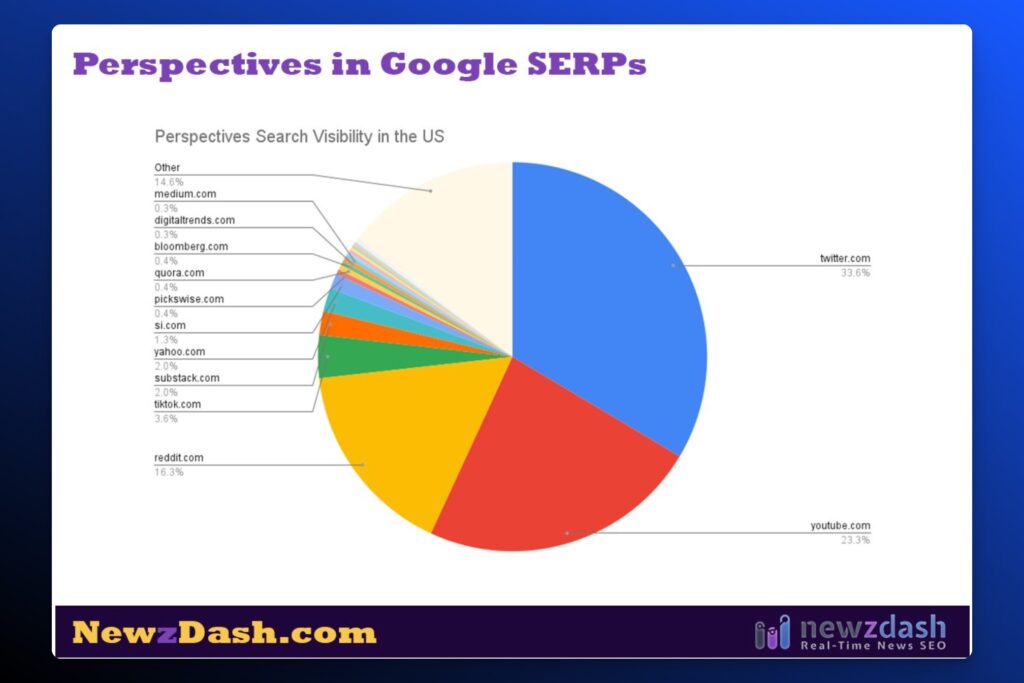
Audit and fix duplicate content: A guide to helping Google choose what to rank – Wix – Lazarina Stoy
Lazartina shares her strategies for identifying and resolving duplicate content issues in SEO. What it is, when it’s good or bad, and what to do about it.
Key takeaways include:
- Identify Duplicate Content: Use tools to find and assess duplicate content on your site.
- Implement Fixes: Apply 301 redirects, use canonical tags, and update or remove duplicate content.
- Prevent Future Issues: Regularly monitor and manage your site’s content to avoid duplication.
Aleyda Solis’ SEO FOMO Chat Hub
Aleyda Solis has built an entire SEO community and given it a free forum hub. With over 700 member and a ton of great conversations, it’s absolutely worth joining.
Tools
Mike Ginley, Paul Shapiro and Lidia Infante all produced excellent homemade tools to help with your SEO effots.
Automatically filter your keywords by intent.
— Mike Ginley (@mikeginleyseo) January 8, 2024
- Brand
- Question
-Intent
Free Google Looker Studio template!#SEO #DigitalMarketing https://t.co/YwrMSSuJsP
I built a little tool the other night called SEODiff.
— Paul Shapiro (@fighto) January 4, 2024
Explanation 📚: https://t.co/ztxo7Lx8a1
SEODiff allows you to compare the html found from Wayback Machines archives with each other and perform an optional analysis with GPT-4.
🔨 https://t.co/JIvdc46I8Q
Bio to Schema – Custom ChatGPT – Lidia Infante
Exciting news 🥳
— Lidia Infante (@LidiaInfanteM) January 3, 2024
I recently launched Bio To Schema, a custom GPT tool designed to transform author bios into rich Person schema to enhance your E-E-A-T.
Try the tool ➡️ https://t.co/MwprzXhoE0
Watch it in action ⬇️https://t.co/oMOiRhVfWz
An Optimist’s View on Generative AI, Content, and SEO ft. Ryan Law – Rankable Ep. 126
Ryan shares insights on how SEO will be impacted by generative AI content and whether it will devalue SEO as a channel in the future. We also discuss what this means for the importance of E-E-A-T (Expertise, Experience, Authoritativeness, and Trustworthiness) in content going forward, the ideal direction for Google in search results, and what the next five years might look like in SEO.
Don’t Burn The Environment With Your Digital Footprint ft Chris Butterworth – Rankable Ep. 127
Chris discusses the importance of education around digital sustainability and strategies to impact change in the digital landscape. He also addresses how to engage people in caring about their digital footprint and the environmental impact of LLMs and Generative AI. Sharing thoughts on the responsibility of large companies in reducing the digital footprint.
Rank Tracking: Now with your content relevance score

Join Garrett Sussman each week as he pulls out all of the biggest and smallest stories from the past week that touch the world of SEO.
Get the scoop on what’s happening to Google, game-changing strategies for SEOs, and the people that you should have on your SEO radar.
